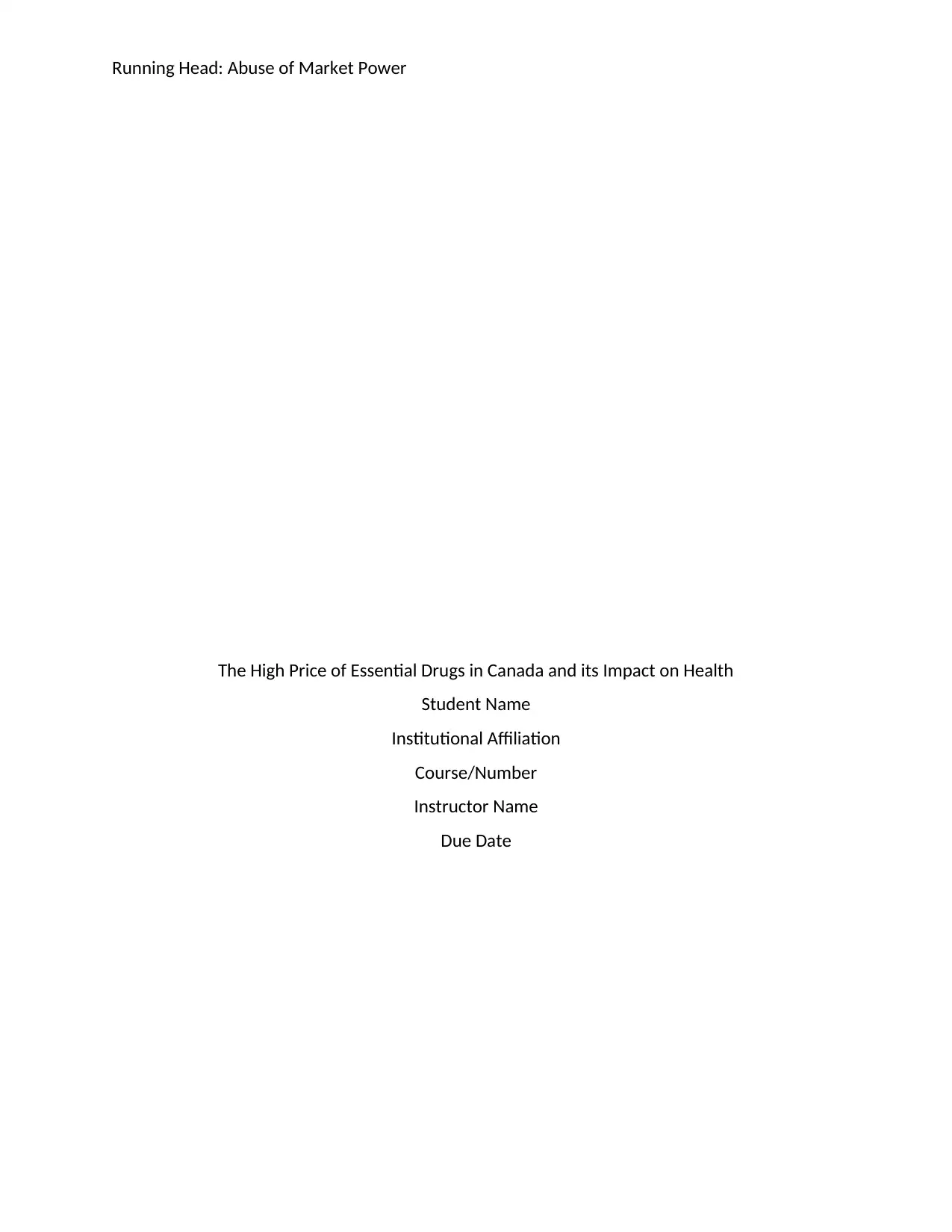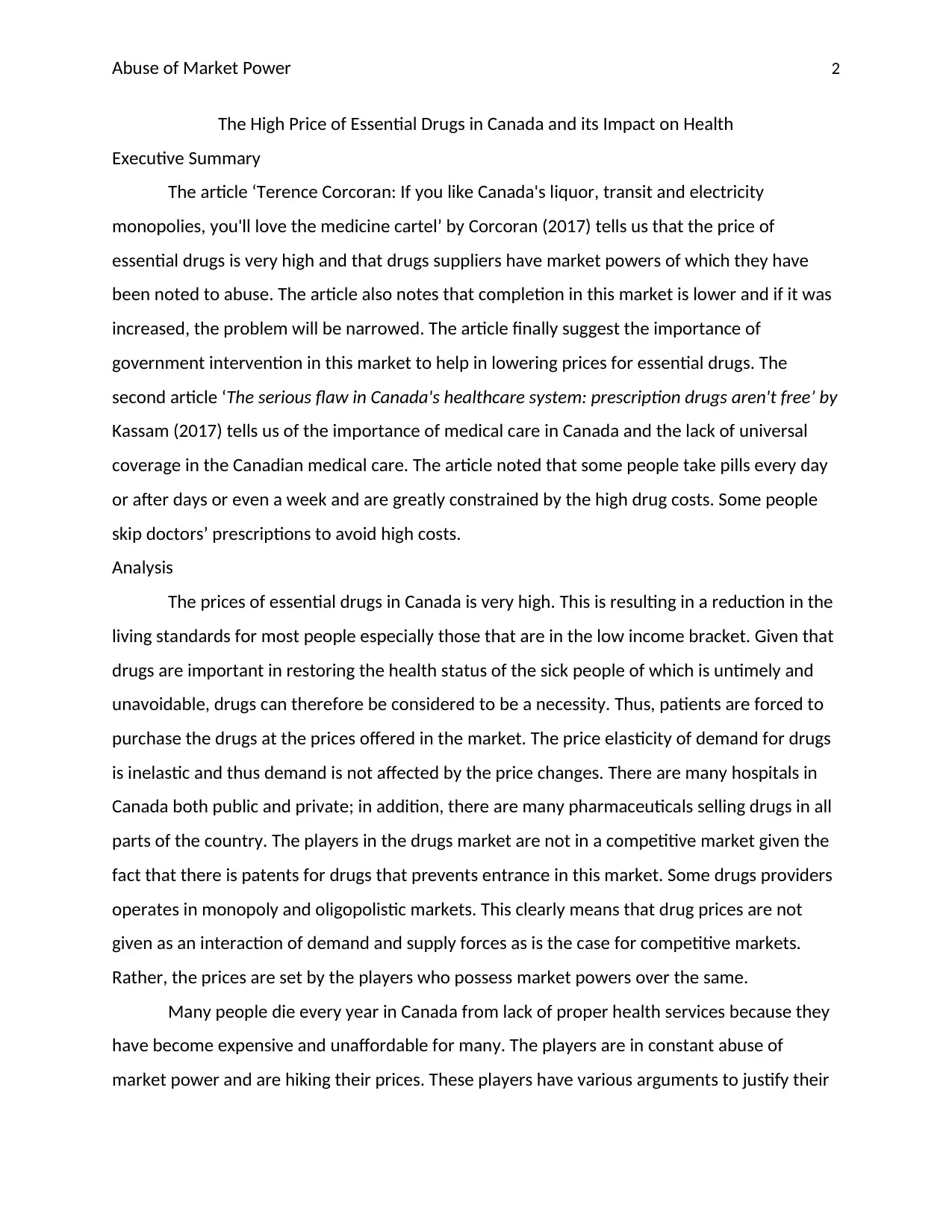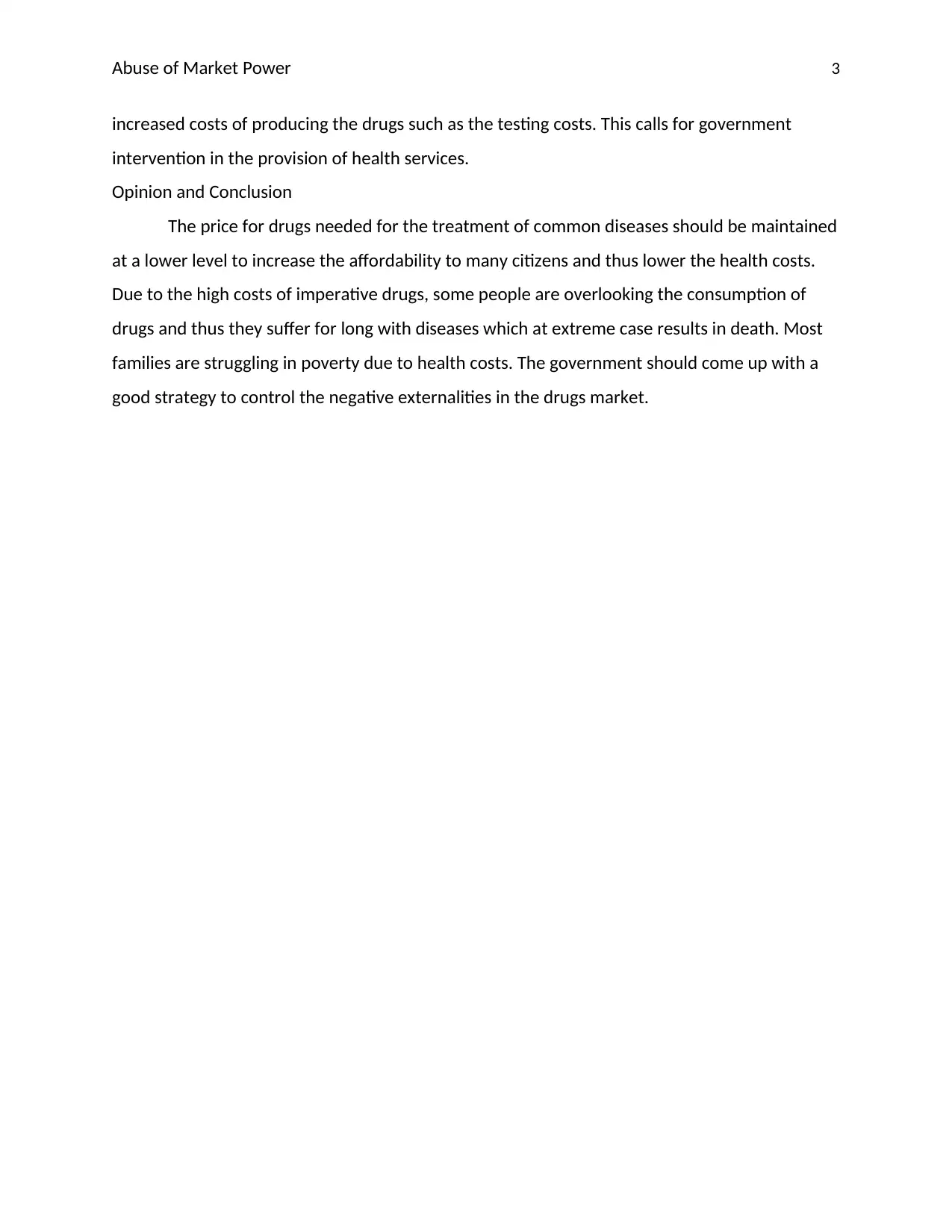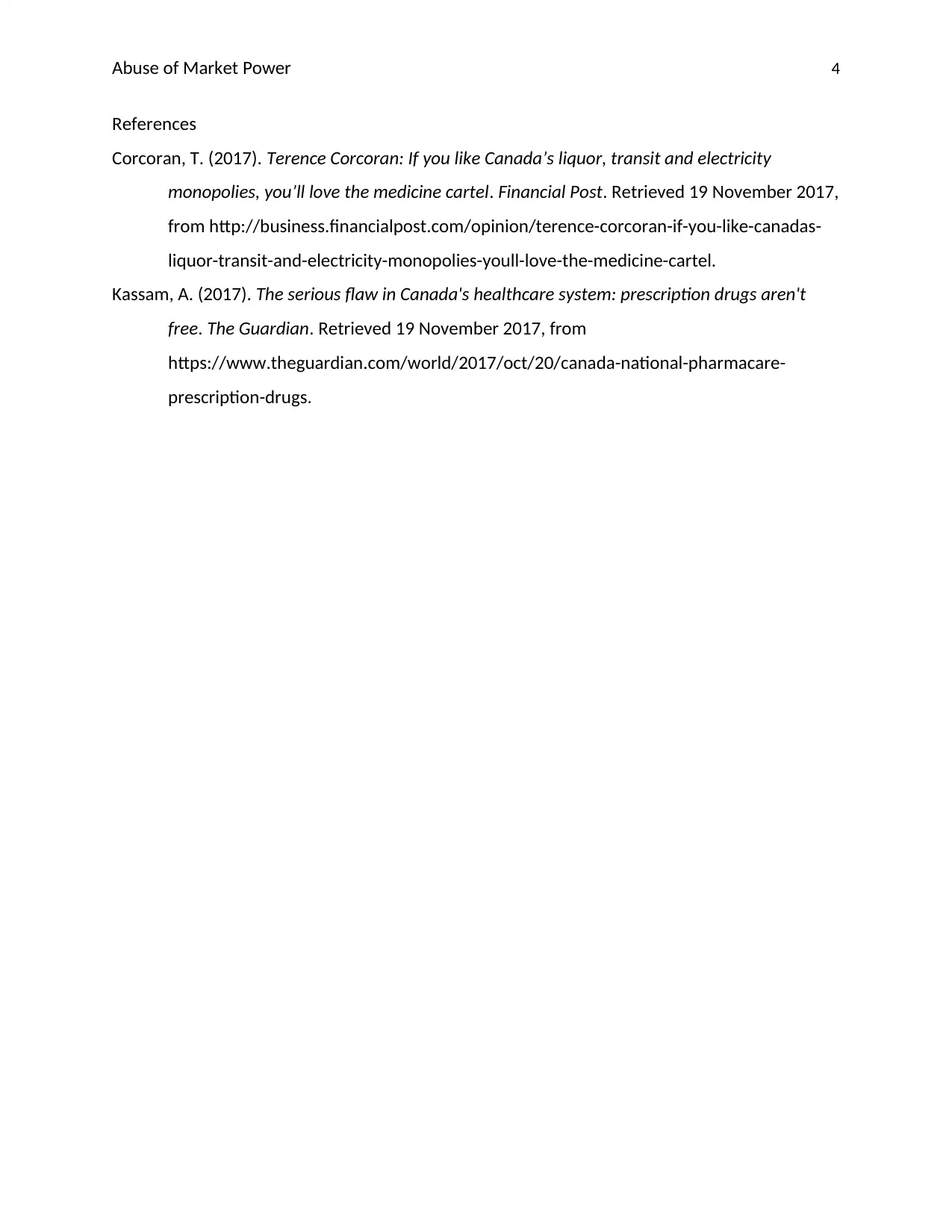The High Price of Essential Drugs in Canada: An Abuse of Market Power
VerifiedAdded on 2020/04/15
|4
|693
|222
Report
AI Summary
This report examines the issue of high essential drug prices in Canada, focusing on the abuse of market power by pharmaceutical companies. The analysis draws on articles that highlight the lack of competition in the drug market, the resulting high costs, and the impact on healthcare access. The report discusses the inelastic demand for drugs, the prevalence of monopolies and oligopolies, and the justification of high prices by drug providers. It emphasizes the need for government intervention to regulate drug prices and ensure affordability, as high costs lead to reduced access to essential medications, financial strain on families, and potential adverse health outcomes. The conclusion advocates for strategies to lower drug prices, improve healthcare affordability, and mitigate the negative externalities associated with the current market structure.
1 out of 4











![[object Object]](/_next/static/media/star-bottom.7253800d.svg)